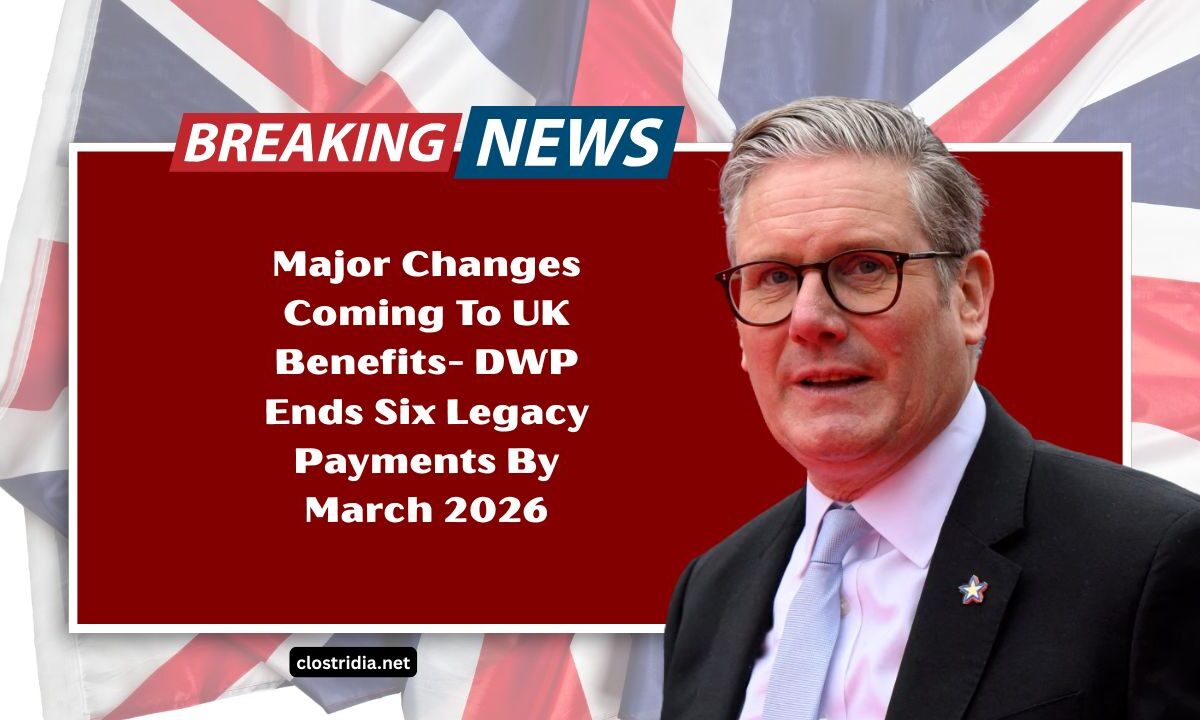The UK’s welfare system is entering its final phase of transformation. The Department for Work and Pensions (DWP) has officially confirmed that six key legacy benefits will be permanently discontinued by March 2026.
This is part of the nationwide shift to Universal Credit (UC) — the single benefit system designed to simplify and streamline welfare payments.
With over 2.6 million households already transitioned to UC, the remaining claimants—particularly those on Employment and Support Allowance (ESA) and Housing Benefit—are now receiving migration notices with a strict three-month deadline to switch.
Which Six Benefits Will End?
Here is the full list of the six legacy benefits that will no longer exist after March 2026:
| Legacy Benefit | Purpose |
|---|---|
| Child Tax Credit | Helps families with dependent children cover basic living expenses. |
| Working Tax Credit | Supports individuals working on a low income. |
| Income-based Jobseeker’s Allowance | Assists those actively looking for work with limited financial resources. |
| Income Support | For those on a low income not expected to work (e.g., caregivers). |
| Income-related Employment and Support Allowance (ESA) | Provides financial aid to those with health issues preventing work. |
| Housing Benefit | Helps low-income individuals and families with rent payments. |
After March 2026, no new or existing claims will be processed for these benefits. Everyone must apply for Universal Credit instead.
How the Transition to Universal Credit Works
The migration process has been ongoing since Universal Credit was introduced in 2013. Initially, it applied only to new claimants. Since 2019, the focus has shifted to managed migration of existing legacy benefit recipients.
- Simple claims (e.g., single tax credit recipients) were prioritized in early phases.
- More complex claims, such as those involving ESA or multiple benefits, are being targeted now, in 2025.
- Claimants receive official migration letters that provide a three-month window to apply for Universal Credit.
What Claimants Need to Do Now
If you receive any of the legacy benefits mentioned, you must act as soon as you receive a migration notice. Here’s what to do:
- Read the notice carefully – it includes your deadline to apply for Universal Credit.
- Apply within three months – failing to do so will stop your payments permanently.
- Gather required documents – such as ID, bank details, employment and housing info.
Those who miss the deadline will not be automatically transferred, and will lose their benefits. You will also lose access to transitional protection (temporary top-up payments) that cushion any drop in income during migration.
Support During Migration
The DWP offers support for those who may struggle with the transition:
- In-person help through Jobcentre Plus
- Telephone assistance for those without internet access
- Extra considerations for those with disabilities or limited mobility
Make sure your contact details are updated with the DWP to receive timely notices. If your letter goes to an old address, you may lose your payments without warning.
Who Is Most Affected?
While most tax credit and JSA claimants have already moved to Universal Credit, the following groups are still at high risk:
| Benefit Type | Estimated Number Still on Legacy Payments |
|---|---|
| Employment and Support Allowance (ESA) | Over 900,000 |
| Housing Benefit | Over 1.6 million |
| Income Support | Around 200,000 |
| Jobseeker’s Allowance (Income-based) | 100,000+ |
| Tax Credit Users | Mostly migrated |
The final wave of migration is happening now, and these groups must apply for UC before March 2026.
Impact on Benefit Amounts
Many fear they may receive less money under Universal Credit, but the government has included a transitional protection for those moved via the managed migration process. This means:
- You may receive a temporary top-up if UC pays less than your old benefit.
- The top-up reduces over time as income or circumstances change.
- Those who miss the deadline and apply late will not get this protection.
Additional Points to Note
- No automatic migration – you must apply yourself within the deadline.
- No back-pay for missed deadlines.
- Assessment periods differ – UC operates on monthly cycles.
- All payments will stop if action is not taken before March 2026.
The end of six key benefits by March 2026 marks a major shift in the UK’s welfare system. Claimants must act quickly upon receiving migration notices to avoid losing payments.
Universal Credit is now the only supported system, and timely action ensures continued support and access to transitional protection.
FAQs
What happens if I miss the Universal Credit application deadline?
You will lose access to your current benefits permanently and will not receive back-pay or transitional protection.
Can I get help applying for Universal Credit?
Yes, support is available through Jobcentre Plus and DWP-authorized services, especially for those with accessibility issues.
Will I receive less money under Universal Credit?
Possibly, but transitional protection may temporarily top up your payment—only if you migrate before the deadline.

